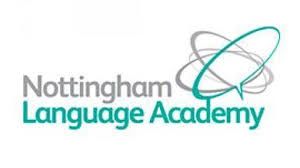
Financial Analysis, Evaluation and Budgeting
Course ID: 2508105701175EGI
Course Dates : 10/08/25 Course Duration : 5 Studying Day/s Course Location: Bahrain, Bahrain
Language: Bilingual
Course Category: Professional and CPD Training Programs
Course Subcategories: Finance and Accounting Mastery
Course Certified By: * Projacs Academy
* Professional Training and CPD Programs
Certification Will Be Issued From :
KSA
Course Fees: £2,940.22
Vat Not Included in the price. VAT may vary depending on the country where the course or workshop is held.
Click to Pay
Date has passed please contact us Sales@e-s-hub.com
Course Information
Introduction
Financial analysis, evaluation, and budgeting are indispensable tools in the arsenal of modern professionals tasked with driving organizational success. These disciplines serve as the backbone of informed decision-making, enabling businesses to allocate resources effectively, anticipate risks, and capitalize on opportunities. In an era where financial literacy is no longer confined to accountants and finance teams but is a prerequisite for leadership across industries, mastering these skills has become paramount. From startups navigating volatile markets to multinational corporations managing complex operations, the ability to interpret financial data and translate it into actionable strategies is a competitive advantage that cannot be overstated.
Despite their critical importance, many professionals face significant challenges in applying financial principles effectively. A lack of foundational knowledge often hinders the ability to conduct accurate financial analyses, while outdated practices may lead to suboptimal budgeting decisions. For instance, consider the case of a mid-sized manufacturing firm that failed to account for fluctuating raw material costs during its annual budgeting process. This oversight resulted in cash flow constraints and delayed expansion plans. Such scenarios underscore the need for structured training that bridges gaps in both theoretical understanding and practical application. By equipping participants with robust frameworks like SWOT analysis, variance analysis, and zero-based budgeting, this course addresses these deficiencies head-on.
The benefits of acquiring expertise in financial analysis extend beyond individual career advancement. Organizations that invest in upskilling their workforce report enhanced profitability, improved risk management, and greater adaptability to market changes. Employees who can evaluate financial statements, forecast trends, and design budgets contribute directly to strategic planning and operational efficiency. Moreover, the integration of cutting-edge tools such as predictive analytics and scenario modeling empowers practitioners to deliver insights that align with contemporary industry demands. As evidenced by companies like Amazon and Tesla, whose success stories are rooted in meticulous financial stewardship, the impact of sound financial practices reverberates throughout every level of an enterprise.
To lend further credibility to the subject matter, this course draws upon established theories and methodologies, including Porter’s Five Forces, the Balanced Scorecard, and Activity-Based Costing (ABC). These frameworks provide a solid foundation for understanding how financial metrics influence business performance. Additionally, recent trends such as ESG (Environmental, Social, and Governance) reporting highlight the evolving nature of financial accountability, emphasizing the need for professionals to stay abreast of regulatory developments and stakeholder expectations. By incorporating these elements, the course ensures relevance and applicability across diverse sectors.
Real-world examples further illustrate the transformative potential of financial acumen. Take, for example, the turnaround story of General Motors during the 2008 financial crisis. Through rigorous cost-cutting measures, asset restructuring, and strategic investments guided by comprehensive financial evaluations, the company not only survived but thrived in subsequent years. Similarly, small businesses have leveraged budgeting techniques to optimize cash flow and secure funding during challenging economic periods. These anecdotes demonstrate that regardless of scale or industry, the principles taught in this course hold universal value.
Ultimately, this program aims to demystify financial concepts and empower participants to wield them confidently in their professional endeavors. Whether you are a seasoned executive seeking to refine your analytical capabilities or a budding entrepreneur eager to grasp the fundamentals, this course offers something for everyone. By blending theory with hands-on exercises, case studies, and interactive discussions, it fosters an immersive learning experience designed to equip you with the skills necessary to excel in today’s dynamic business environment.
Objectives
By attending this course, participants will be able to:
Analyze financial statements using key ratios and metrics to assess organizational health.
Evaluate investment opportunities through discounted cash flow (DCF) models and net present value (NPV) calculations.
Design comprehensive budgets aligned with organizational goals and resource constraints.
Apply variance analysis techniques to identify discrepancies between planned and actual financial outcomes.
Implement advanced forecasting methods to predict future financial performance accurately.
Assess compliance requirements related to financial reporting and auditing standards.
Utilize software tools such as Excel and specialized financial platforms to streamline data analysis and visualization.
Who Should Attend?
This course is ideal for:
Finance managers, analysts, and accountants seeking to deepen their expertise in financial evaluation and budgeting.
Project managers responsible for overseeing budgets and ensuring project viability.
Entrepreneurs and small business owners aiming to enhance their financial decision-making capabilities.
Consultants and advisors who require proficiency in financial modeling and client recommendations.
Mid-level executives involved in strategic planning and resource allocation.
Training Method
• Pre-assessment
• Live group instruction
• Use of real-world examples, case studies and exercises
• Interactive participation and discussion
• Power point presentation, LCD and flip chart
• Group activities and tests
• Each participant receives a 7” Tablet containing a copy of the presentation, slides and handouts
• Post-assessment
Program Support
This program is supported by:
* Interactive discussions
* Role-play
* Case studies and highlight the techniques available to the participants.
Daily Agenda
The course agenda will be as follows:
• Technical Session 08.30-10.00 am
• Coffee Break 10.00-10.15 am
• Technical Session 10.15-12.15 noon
• Coffee Break 12.15-12.45 pm
• Technical Session 12.45-02.30 pm
• Course Ends 02.30 pm
Course Outlines
Foundations of Financial Analysis
Introduction to financial statements: Balance sheets, income statements, and cash flow statements.
Key financial ratios: Liquidity, profitability, solvency, and efficiency metrics.
Understanding the time value of money and its implications.
Case study: Interpreting financial health through real-world examples.
Day 2:
Investment Evaluation Techniques
Principles of capital budgeting and investment appraisal.
Calculating NPV, IRR (Internal Rate of Return), and payback periods.
Risk assessment in investment decisions.
Workshop: Building a DCF model for a hypothetical project.
Day 3:
Budgeting Fundamentals and Best Practices
Types of budgets: Static, flexible, incremental, and zero-based budgeting.
Steps to create a realistic and actionable budget.
Aligning budgets with organizational objectives.
Group activity: Drafting a departmental budget.
Day 4:
Variance Analysis and Forecasting
Identifying and analyzing variances in financial performance.
Techniques for accurate revenue and expense forecasting.
Scenario planning and stress testing financial projections.
Practical exercise: Conducting variance analysis using sample data.
Day 5:
Compliance, Tools, and Emerging Trends
Overview of financial reporting standards (GAAP, IFRS).
Leveraging technology for financial analysis and budgeting.
Trends shaping the future of finance: AI, blockchain, and ESG reporting.
Final assessment: Presenting a financial strategy proposal.



















































